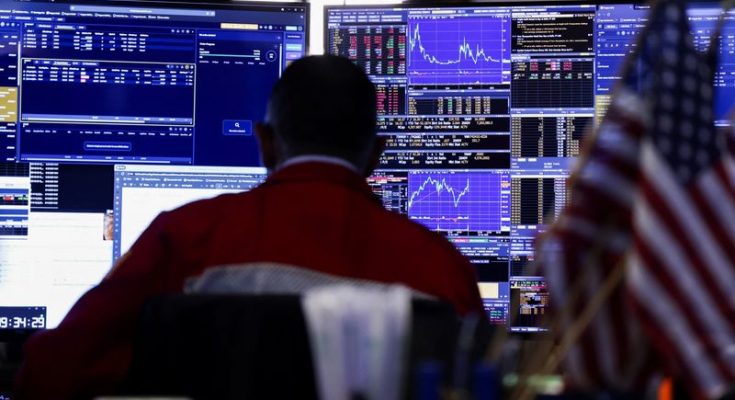By Alun John and Ankur Banerjee
SINGAPORE/LONDON (Reuters) -Global financial stocks slid on Friday as a rout in U.S. regional banking shares heightened concerns about credit quality and mounting risks in the sector.
The banking sector’s exposure in two recent U.S. auto bankruptcies has rekindled concerns about lending standards more than two years after Silicon Valley Bank’s failure, when high interest rates drove paper losses on its bonds and sparked a global bank stocks rout.
Investors are now trying to assess whether recent issues in U.S. credit markets will have a similar effect, as an overnight selloff on Wall Street rippled across Asia and Europe and shone a spotlight on the recent AI-led surge in broader stock markets that some fear could have created a bubble.
DEUTSCHE BANK AND BARCLAYS LEAD EUROPEAN LOSSES
“What we see in the banks selling off overnight in the U.S., Asia wakes up to it, Europe wakes up to it, and so it spreads,” said TD Securities head of global macro strategy James Rossiter.
European banks fell almost 3%, with Deutsche Bank and Barclays sliding around 6%, and Societe Generale down 4.6%, after financial firms in Asia, especially Japanese banks and insurers sank.
In pre-market U.S. trading, the SPDR S&P regional banking ETF was down 2.4%, a day after the benchmark tumbled 6%, its steepest one-day selloff in six months.
Shares of Zions Bancorp, at the heart of the investor scrutiny, slid 1.7%, with big banks down a similar amount.
U.S. stock futures fell and in a sign of the fears of contagion, big tech names fell more than banks, with Nvidia around 3% lower.
The latest selloff came after Zions said it would take a $50 million loss on two commercial and industrial loans from its California unit, while Western Alliance disclosed it had initiated a lawsuit alleging fraud by Cantor Group V, LLC. Attorneys for Cantor denied the allegations.
Such disclosures would not typically impact broader markets, but drew attention as they followed the collapse of two U.S. companies, FirstBrands and Tricolor.
Those failures rattled investors worried about risks in private credit, a booming but less regulated market where companies have borrowed heavily in the past few years.
Credit impairments in private debt have been rising and default rates have hit 5.5%, said Mark Dowding, chief investment officer at RBC BlueBay Asset Management, citing latest available data for the second quarter.
“At the same time, it has also been striking that where credit events have occurred, this has gone hand-in-hand with a weakening of covenants and investor protections, inferring larger losses on default than have historically been the case,” he added.



